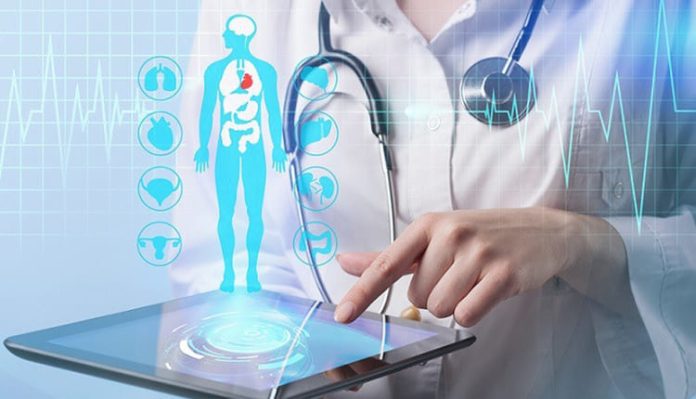The field of healthcare has witnessed remarkable advancements in recent years, thanks to the rapid development of medical technology. From diagnostic tools to surgical equipment and remote monitoring devices, these innovations are revolutionizing healthcare delivery and patient outcomes. In this comprehensive article, we will explore the exciting advancements in medical technology and discuss how new equipment is transforming the landscape of healthcare.
The Era of Precision Diagnosis
In the realm of healthcare, one of the most remarkable advancements brought about by medical technology is the era of precision diagnosis. Traditional diagnostic methods often relied on subjective observations and limited information, leading to potential inaccuracies and delays in treatment. However, with the advent of sophisticated medical equipment and innovative techniques, healthcare professionals can now achieve more accurate and precise diagnoses.
Advanced imaging techniques such as magnetic resonance imaging (MRI), computed tomography (CT), and ultrasound provide detailed insights into the human body, enabling healthcare professionals to detect diseases at an early stage. Therefore, healthcare professionals are now able to detect abnormalities, such as tumors, lesions, or structural defects, aiding in early intervention and treatment planning.
Surgical Innovations: Enhancing Precision and Minimizing Invasiveness
Minimally invasive surgeries have gained prominence in recent years, thanks to the advancements in surgical equipment. Robotic-assisted surgery, laparoscopic procedures, and laser technologies have revolutionized the way surgeries are performed. Another great example is the incorporation of augmented reality technologies, such as the ones developed by https://www.novarad.net/, which enable surgeons to perform complex procedures with enhanced precision. Augmented reality-assisted surgeries increase the surgeon’s accuracy, resulting in smaller incisions, reduced pain, faster recovery times, and improved surgical outcomes.
Remote Monitoring and Telemedicine
The integration of medical technology with telemedicine has opened new doors in providing healthcare remotely. Devices such as wearable sensors, smartwatches, and mobile health applications enable patients to monitor their health conditions from the comfort of their homes. Remote monitoring devices, like continuous glucose monitors for diabetes management, allow patients to track their blood sugar levels in real-time and share the data with healthcare professionals for timely intervention. Additionally, telemedicine platforms facilitate virtual consultations, enabling patients to receive expert medical advice and follow-up care without the need for in-person visits.
Advancements in Medical Services
In today’s ever-evolving healthcare landscape, numerous providers in Sacramento are offering advanced medical services to cater to the changing needs of patients. These providers are deeply committed to delivering top-notch care, innovative solutions, and customized experiences. For instance, there are companies specializing in telemedicine and remote monitoring, enabling patients in Sacramento to conveniently consult with experienced healthcare professionals and receive medical advice and prescriptions from the comfort of their homes.
There are Certified Biomedical Solutions Providers that stand out for their exceptional device repair, compliance, and sterilization solutions. They offer a sterilizer monitoring service in Sacramento, ensuring that the sterilization equipment in medical facilities throughout functions properly and complies with industry regulations. This service plays a crucial role in maintaining a safe and sterile environment for medical procedures in the region.
Diagnostic service providers also utilize cutting-edge equipment and skilled technicians to offer state-of-the-art services. These services aid in the early detection of diseases and contribute to the development of personalized treatment plans, ultimately improving patient outcomes within the Sacramento area.
Moreover, pharmaceutical companies are dedicated to developing groundbreaking medications and therapies to address complex diseases. Their focus on innovation and research contributes to advancements in healthcare and positively impacts the lives of individuals within Sacramento and beyond.
Artificial Intelligence in Healthcare
Artificial intelligence (AI) has made significant strides in healthcare, transforming the way medical data is analyzed and utilized. Machine learning algorithms can process vast amounts of patient information, aiding in accurate diagnosis, personalized treatment plans, and predicting health outcomes. AI-powered diagnostic systems, such as computer-aided detection for mammography, assist radiologists in identifying potential abnormalities, improving the accuracy of breast cancer screenings. Furthermore, AI algorithms can analyze genetic data to identify patterns and potential risk factors for various diseases, facilitating targeted preventive measures.
Enhancing Patient Safety and Care Delivery
New equipment and technologies are not only improving diagnosis and treatment but also enhancing patient safety and care delivery. From smart infusion pumps to barcode medication administration systems, these tools reduce medication errors and ensure proper dosage. Smart infusion pumps utilize advanced algorithms to calculate and deliver precise doses of medication, reducing the risk of human error in manual calculations. Barcode medication administration systems enable healthcare professionals to scan medication barcodes at the bedside, ensuring accurate medication administration and reducing the risk of medication mix-ups.
Conclusion
In conclusion, the advancements in medical technology are revolutionizing healthcare as we know it. From precision diagnosis techniques utilizing advanced imaging technologies and molecular probes to data-driven approaches powered by artificial intelligence, the landscape of healthcare is being transformed for the better. These advancements enable healthcare professionals to achieve more accurate and timely diagnosis, leading to improved patient outcomes and personalized treatment plans. By embracing these new technologies and staying at the forefront of medical innovation, we can ensure that healthcare continues to evolve, providing patients with the best possible outcomes and experiences.
Disclaimer: This article contains sponsored marketing content. It is intended for promotional purposes and should not be considered as an endorsement or recommendation by our website. Readers are encouraged to conduct their own research and exercise their own judgment before making any decisions based on the information provided in this article.



































